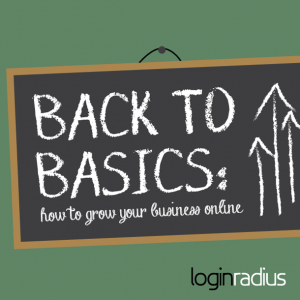Can you tell how a company is doing just by looking at its social media activity? A piece of investigative journalism from Buzzfeed (yes, Buzzfeed) implies the answer might be yes. Their journalists chose a few social media apps and then looked at how often people were tweeting out links to content on those apps. For example, how often were people tweeting out links to, say, Instagram pics? Meerkat livestreams? Ello updates? Had those patterns declined over time, leading to what Buzzfeed calls “social decay”? And could social decay predict when an app was in danger of failing? Their answer, based on what happened to a few apps they examined, is yes.
This makes sense. Social media apps depend on virality because they’re subject to a dynamic known as network effect. Network effect simply means that the more users a company has, the more valuable it becomes to other users. It’s true: if Facebook were a ghost town, there would be little point in your using it. So Buzzfeed’s analysis seems sound: a lack of social media activity can send out a mayday signal.
What about businesses that aren’t social media apps? What signals are being sent by their presence on social media? And by “presence” we actually mean two things:
- Whether other people are talking about that business on social media
- Whether the business itself is staying active on social media
Can we take these as proxies for the state of a company’s health?
The first category is an example of social proof. As Wikipedia describes, “Social proof is a type of conformity. When a person is in a situation where they are unsure of the correct way to behave, they will often look to others for cues concerning the correct behavior.” Seeing a high amount of followers, likes, retweets and shares on a company’s social networks can provide the social proof that can turn a prospect into a customer.
The unfortunate thing about social proof is that it’s very easy to game. The title of another recent piece of investigative journalism speaks for itself: I Created A Fake Business and Bought It An Amazing Online Reputation. In it, journalist Kashmir Hill describes what’s on offer at Fiverr.com, a “global online marketplace for creative and professional services.”
For $ 5, I could get 200 Facebook fans, or 6,000 Twitter followers, or I could get @SMExpertsBiz to tweet about the truck to the account’s 26,000 Twitter fans. A Lincoln could get me a Facebook review, a Google review, an Amazon review, or, less easily, a Yelp review.
As more consumers become aware of this kind of gaming, they may place less importance on these signals over time.
The second category of social media activity, whether the business itself is staying active on social media, is more straightforward. Each social media post is a literal sign of business activity. It’s a direct way of demonstrating that your business has a pulse. That’s why, if you own a business, it’s important to avoid running out of steam on social media.
We’ve all seen it. A business owner creates a Facebook page or Twitter profile. At first they manage to post to regularly, and they may even find the time to create a content calendar to guide their activity several days or weeks out. But after a while, the daily hour that was once dedicated to social media can be harder to come by. Ironically this may happen because business is doing well, not poorly. The day-to-day demands of managing its growth may not leave enough time to keep the social media networks active. As a result social media posting becomes more sporadic, leaving an impression that business is bad when actually the opposite is true.
This matters not just to potential customers, but also to potential investors and business development partners.
So the lesson is, if you create social media profiles for your business, consider the signals you’re sending with your activity — or lack thereof — and make sure the pulse of your business is beating strong enough for the world to hear.
Digital & Social Articles on Business 2 Community(118)






